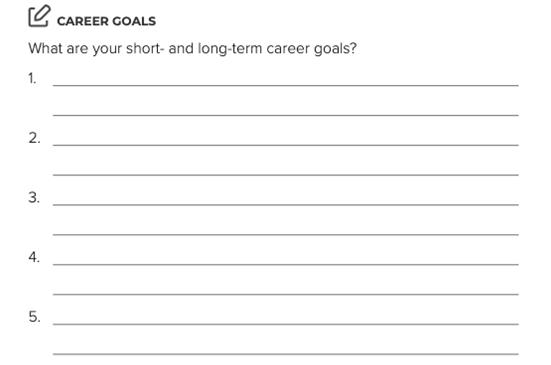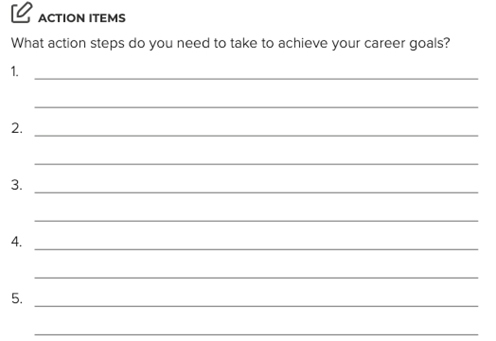Setting effective and S.M.A.R.T. career goals
Erin Devlin • February 28, 2022
When assessing what it is that you really want from your career and job, it’s helpful to break it down into specific goals, such as becoming an expert in your field, owning your own business, or mastering a particular skill. These goals underpin your career plan and are important to establish before you start applying for jobs.
Research profiles of people who you admire. Examples might be a scientist who is conducting world-leading health research, a florist brightening someone’s day, or a marketing consultant involved in lots of creative projects. Whatever it is, don’t just think of the idea of it – actually find some real-life people who you want to emulate or draw inspiration from. Of course, you’ll forge your own journey, but having people in sight that make you want to take action can help create focus and shape your career goals.
Use a formula, like George T. Doran’s S.M.A.R.T. goal acronym, that can give you a clear vision to work towards. S.M.A.R.T. stands for Specific, Measurable, Assignable, Realistic and Time-based. For example, you might say:
‘I’d like to be an expert in the field of ski instructing and be hired by one of the world’s top five resorts in the next six years.’
Or:
‘I’d like to own a business that solves a key social problem in the community in the next ten years.’
Or:
‘I’d like to be a respected accountant, in a mid-tier firm, close to home, where I can spend quality time with my family, in five years’ time.’
These are all great examples of career goals. You may have just one overarching goal or several that you’d like to explore. Remember that goals can be malleable and may change over time as your needs, wants and desires change. Initially, making money might seem like the most important thing to you; but later, giving back or championing diversity initiatives may become more important.
You can make micro-goals too, like ‘Learn how to use Adobe InDesign to an advanced level within the next year’ or ‘Attain my Six Sigma Black Belt in the next three years’.

Take action
For each career goal that you’ve set, think about what you need to do to achieve each goal. Is there some training or a university course that you need to complete? Are you required to obtain a particular certificate or qualification? Are there areas of interest that you’d like to explore further through research, conversations or work experience? Decide what action steps are needed to propel you towards achieving your career goals. Work out a timeframe, as well as practical and logistical steps to undertake each action. And set yourself on a course to career success.

To further your planning and access a free career plan template click here.
This is an excerpt from Erin Devlin’s book ‘Get the job you really want’, available at Booktopia
here.
Erin Devlin GAICD FRCSA, is the Managing Director of people2people Recruitment Victoria, and the Next Gen Board Director for the Recruitment, Consulting and Staffing Association of Australia and New Zealand. She is an experienced business leader, board director, speaker, author, mentor and media commentator on careers and employment. Connect with her on LinkedIn
here.
Find the job you love I Find the right talent
Get in touch with people2people
Australia
I United Kingdom
In business since 2002 in Australia, NZ, and the United Kingdom, people2people is an award-winning recruitment agency with people at our heart. With over 12 offices, we specialise in accounting and finance, business support, education, executive, government, HR, legal, marketing and digital, property, sales, supply chain, and technology sectors. As the proud recipients of the 2024 Outstanding Large Agency and Excellence in Candidate Care Awards, we are dedicated to helping businesses achieve success through a people-first approach.
Recent articles









